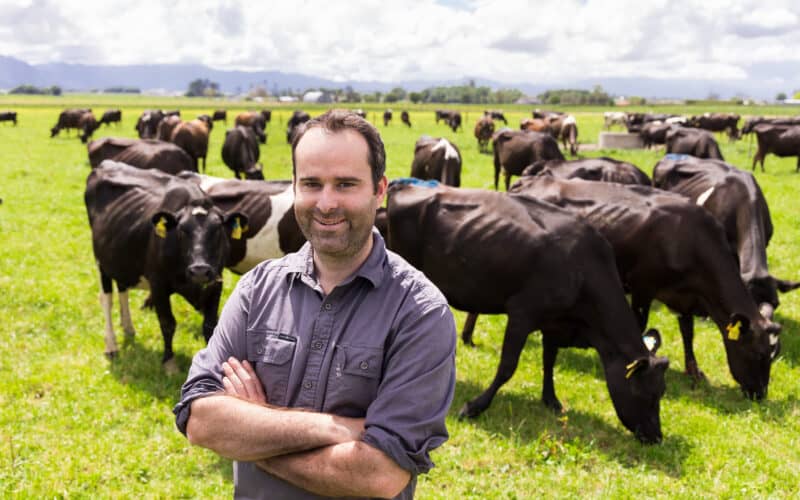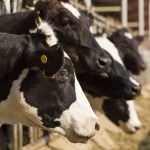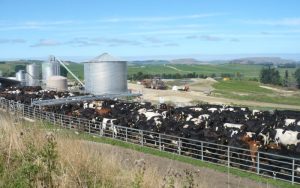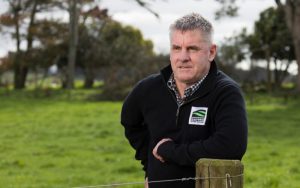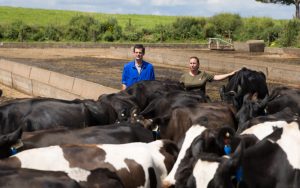
A Waikato agri-business offers a one-stop farm management shop for those who can’t, or don’t want to, farm their land themselves.
Mitchell Coombe could have been a dairy farm consultant.
It’s a profession the Waikato-based agri-business owner certainly has the skill set and knowhow for.
But most advisers tend to supervise rather than get involved in the day-to-day management of a farm business, which he enjoys.
Instead, he created and founded TCG Agriculture, a unique farm business that offers staffing and management services on dairy farms where the owners are no longer wanting to run or manage the business, but do not wish to sell.
“I like to be in the nitty-gritty, get involved in the operational stuff and see the results – and so does my team, they like to get a positive result,” he says.
He says TGC brings professional staffing and management to farms at scale while providing progression pathway options to contract or sharemilkers that they may not have necessarily had.
He established TCG Agriculture in 2016-17.
“I saw a need in the industry – we established a name for ourselves, and it grew from there.”
Today it runs 13 farms, ranging from 140-cow herds to those of over 1000, supplying Fonterra, OCD and Tatua across Waikato and Bay of Plenty.
The farms vary both in system type and business arrangements, and produce an estimated 1.4 million kilograms of milk solids.
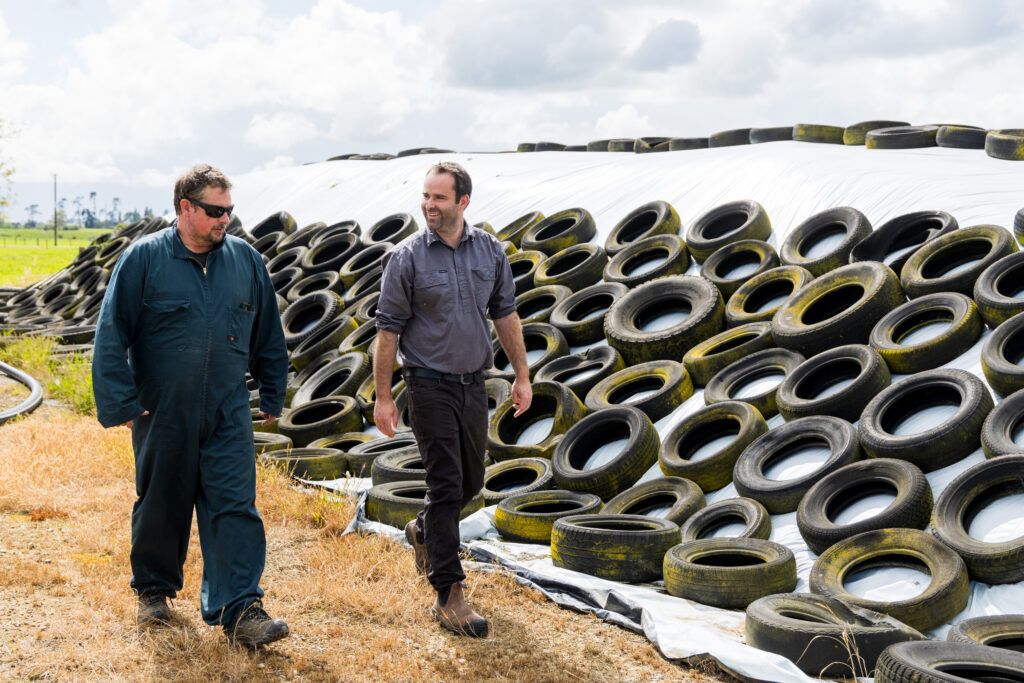
Coombe works out of one of the dairy farms his business supervises, a Tatua-supplying farm that is owned by a family trust.
From there, he runs a team of 19 full-time staff, not including contract staff or farm staff who were already employed by the farm owner when TCG was contracted in a supervisory role, such as contract milkers or dairy assistants.
His grandparents ran a farm in the Morrinsville district that has been passed on to his uncle. As a child, he spent many hours, weekends and holidays on the farm despite his parents not being farmers themselves.
After school he did an OE and returned to New Zealand, working as a contract milker. For the next four years he combined dairy farming with being the chief executive of a flying school before setting up TCG.
He started noticing an increase in farms where the farm owner was getting too old to run the farm and there was no natural succession plan because their children or relatives did not want to be involved.
Many of these farmers did not wish to sell up – they wanted the family to remain attached to a million-dollar asset they have worked so hard to develop. But in many cases, the children had established careers outside the farming industry and had no interest in taking over.
Often, they are small-scale at around 80-100ha with infrastructure issues. The owner is debt-free but is reaching or is at retirement age and is looking at options.
TCG runs the farms in a variety of different ways, depending on the farm owners.
In some cases where there is an elderly owner, TGC enters into a lease on the farm and runs it as such with a manager or contract milker employed by Coombe.
In others, including the farm Coombe lives on, TGC is paid a management fee and employs all the staff in a system similar to contract milking.
That farm is a $30m asset, but none of the trust members have any interest in running the farm on a day-to-day basis, he says.

“Here I get paid effectively to manage everything. We employ the staff, we own the machinery, we do the rostering and we get paid a fee to do so.”
The third option is farm supervision, where they get paid 25 cents for every kilogram of milk solid produced.
On the smaller farms, Coombe looks at instigating an equity partnership with the farm owner by employing a manager.
The manager is also given skin in the game via options to build equity to allow for industry progression, such as the opportunity to buy cows.
“We’re trying to bring young people up the ranks and instead of them having this massive wall of banks saying ‘No’, to every young farmer that doesn’t have Mum and Dad backing them, we’ll try and leverage some equity for them and the chance to raise some capital.”
There are farm owners out there struggling to wrap their heads around the reality of the farm environment planning now required for farming, he says. Employing that young manager who understands this compliance de-risks the farm.
Coombe keeps in touch with the farm owners on all of the farms via monthly reports that assess all of the farm’s operational issues and aspects, including production, animal health, human resources, effluent and presentation. He also manages the relationship between the farm owners and the manager or contract milker.
Inputs such as supplementary feed or fertiliser are set as part of the farm’s annual budgeting. Anything on top of that, Coombe will speak to the farm owners, who make the ultimate decision. This usually occurs if there is an issue such as a drought and extra feed is required across the farms.
In seasons such as the current one, where an El Niño summer is expected, the farms plan accordingly and have a good policy and budget in place, he says.
“You then know where your limitations are.”
He also meets on farm with his staff semi regularly to discuss any operational issues. Over the busy period of calving, his PA turns into a full-time baker and food delivery driver to support the farm staff, taking on the role of “Camp Mother”, he says.
“She’s very instrumental in the mental health check-ins.”

In situations where the milk price falls, such as the current season on the lease farms, TCG takes a financial hit because the lease farm arrangements have the farm owners ensured a guaranteed income.
It is demoralising for those farm managers whose efforts are not being adequately rewarded, he says.
On the lease farms, he sits down with the senior management teams and works through a plan and a budget for those farms. On the supervised farms, he meets with the owner and together they work through a budget.
If it gets to the stage of having to meet with the farm’s banker, that is what they do and that relationship management sometimes extends to those conversations, he says.
He has also helped out the Rural Support Trust on occasion. On one such occasion, the farm owner had dementia and the contract milker had walked off the farm.
The trust, along with the farm’s adviser, asked if he could step in and keep the farm going and ensure the cows were milked over the short term while they found a solution.
“On those occasions we have provided emergency farm management because we have a big team.”
The experience taught him the necessity for farmers to have a “what if” plan.
“A lot of farm owners have heart attacks or break legs and we are finally getting there with health and safety, but we are not with contingency plans.”
That plan could be using the services of a company like TCG, or be as simple as having an agreement with a neighbouring farmer to manage the farm if they fall ill.
Such plans were utilised during the covid-19 lockdown but Coombe believes they have to be part of any farm business. Such a plan is more of a farm continuity plan than a succession plan and is becoming a prerequisite for banking relationships.
“I have two businesses where owners are at that stage of life,” he says.
He also has stepped in when a farm owner has mental health issues, saying they were burnt out and needed a break from farming.
“It was awesome that he made the phone call because a lot of people don’t.”

It was a story with a good ending after the farmer came back after a two-week break and happily continued farming.
These plans are also needed on farms where the sons or daughters were not interested in taking over the business.
On the trust-owned farm where he lives, the trust members have five children between them, and none knows how to operate the farm.
“That’s a danger point for any business,” he says.
A large part of his role is also relationship management between the farm owner and staff. TCG puts systems in place that bring that owner-manager level up so both are happy, he says.
“That’s what our suppliers actually want, for these to be professionally run businesses.
“I say to every farm manager, ‘You are the CEO of a multimillion-dollar company running this farm – act like it’.”
TCG’s services are open ended. If a farm feels it no longer needs them, it can opt out, he says.
“To us that’s never a problem because these farm businesses are always evolving.”
At the end of this season he may be exiting an iwi-owned farming trust after he was employed to bring some stability into the farm business.
“We have been there three seasons and spent almost a quarter of a million dollars on infrastructure and now they are at the point where they can employ a sharemilker.”
This was always the trust’s plan to help get whānau into the farm progression journey. At the same time, TCG’s door remains open for them, he says.
“It would be a really good outcome for us. We have done our job and made some money over the three years.”
This article first appears our sister publication, Dairy Farmer.
